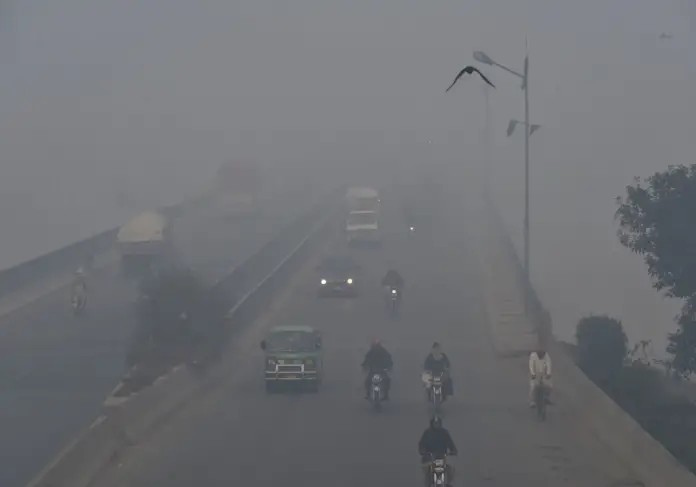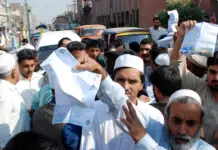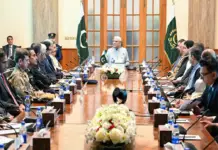The Punjab Environmental Protection Agency (EPA) once again has planned to “waste” another amount on repair and maintenance of air quality monitoring stations (AQMS), which never produced accurate air quality data.
For the purpose, a tender worth Rs43 million would be soon advertised but the high ups of the agency themselves were unclear whether the AQMS would be able to produce accurate air quality data or not, even after spending the huge amount.
The finance department recently approved Rs43 million as non-development budget for the repairing and maintenance of nine AQMS.
These AQMS have been claimed by the EPA, despite the fact that not a single one ever produced accurate air quality data. Many reports have highlighted that the EPA has been disseminating fake or wrong data regarding the air quality of Lahore and parts of Punjab.
EPA claimed to have at least nine air quality monitoring stations. Of these, three were Horriba made with BAM analyzers and were donated by the Japan International Cooperation Agency (JICA), while six were Airpointers recently procured from Austria through a local company CHEMTECH.
EPA had procured the Airpointers worth about Rs100mn in 2017 after declaring the three JICA AQMS ineffective. However, despite spending a huge amount, the six Airpointers did not produce accurate data and the EPA kept on disseminating faulty metrics to the public.
After the reservations of the quarters concerned including the Lahore High Court (LHC) over inaccurate air quality record, EPA in 2018 had its AQMS repaired, including newly procured Airpointers after spending a huge amount of Rs15 million. This repair expenditure was proven a wastage of money as AQMS continued to produce inaccurate data.
Sources in the EPA said that the new plan to float a tender for the repair and maintenance of AQMS was enough to prove that the EPA currently had no system to inform the accurate state of air quality at any spot in the province.
They continued that there were also reservations among the EPA officials that once again spending a huge amount on repairing Airpointers could possibly be of no use. “Airpointers never produced accurate air quality data as they were cheap, faulty and not made for a country like Pakistan,” they said, adding that another attempt to get them repaired was to provide justification that perhaps they were not faulty to begin with and could work after repairs.
Confused about spending the huge sum of money, the Punjab Environment Protection Department (EPD) Secretary Mubashar Hussain asked for prayers for successful repairs.
Talking to Minute Mirror he said that he was informed that AQMS were not working properly and needed repair. “I got approval from finance department of Rs43 million to keep the system updated,” he said and showed hope that after the repair the AQMS would be able to produce accurate air quality data.
Meanwhile, environmentalists once again have raised their reservations over the optimal working of the Airpointers after another repair.
Environmentalist Dr Syed Nihal Asghar, talking to Minute Mirror, said that air quality monitoring was not a short term but a continuous and permanent process. He said that to measure the air quality was among the primary duties of the EPA and it had failed in doing so.
“The procurement of Airpointers was not a suitable decision of the then EPA officials as these equipment were not made to produce results in a country like Pakistan under the extreme weather conditions. Airpointers are not considered good machines as compare to Horriba’s BAM for the continuous monitoring of ambient air,” he said.
He further added that in the past EPA never allocated running budget to keep running the AQMS and air quality monitoring could not be measured unless there was an allocation of the running cost of the equipment.







